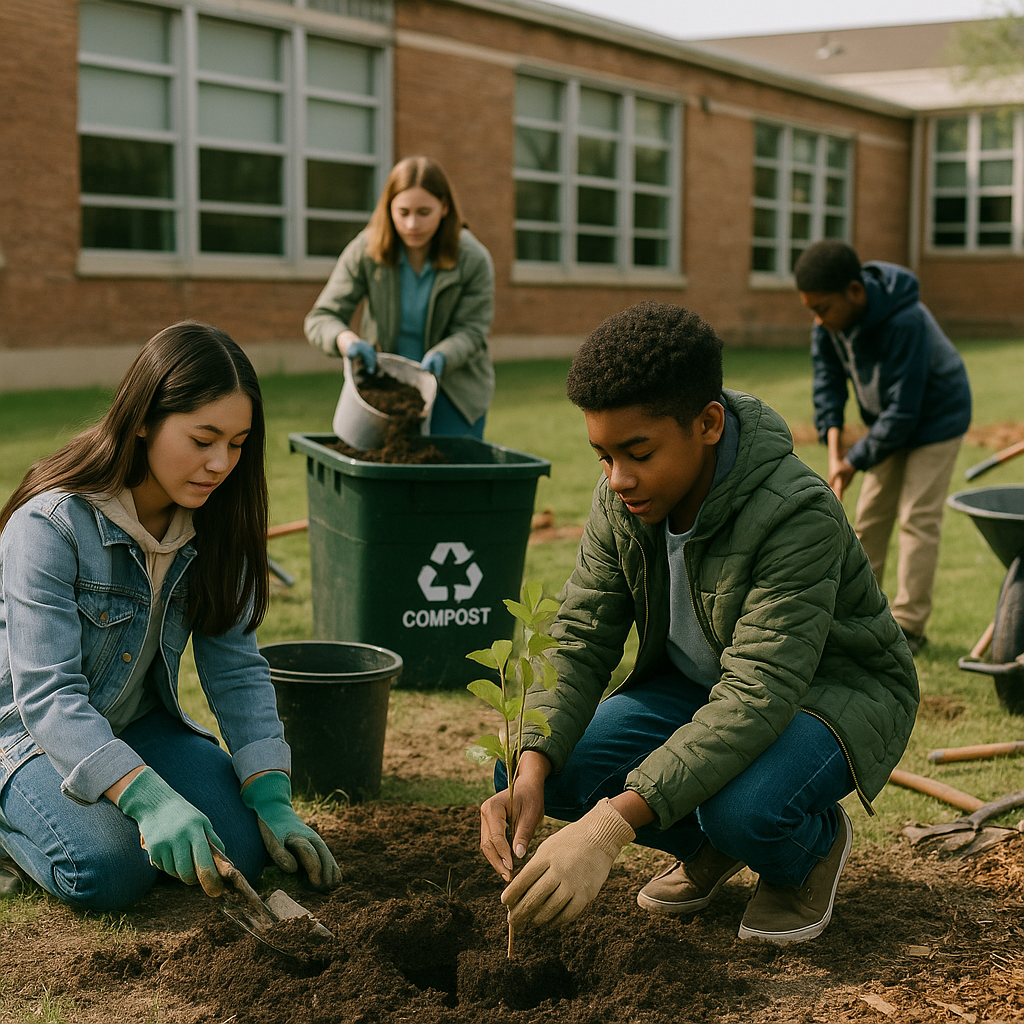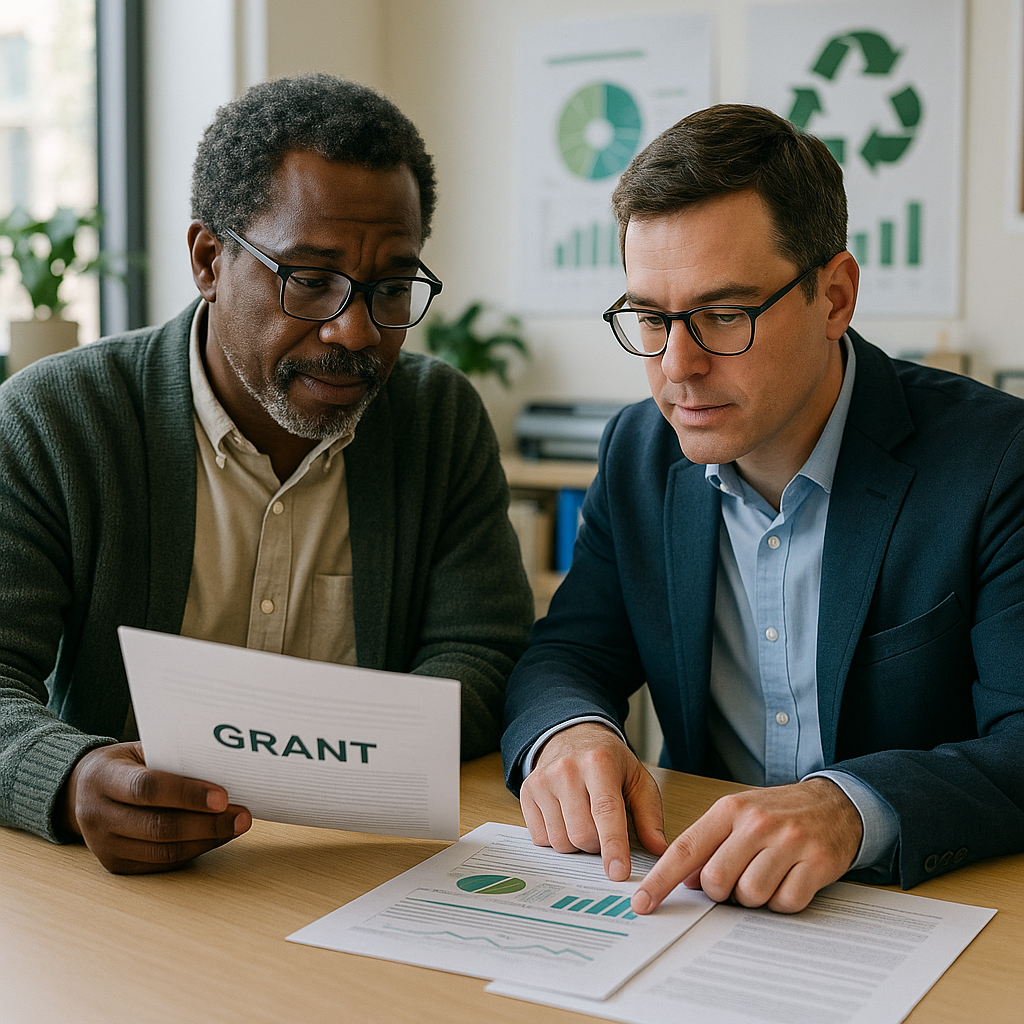5901 Botham Jean Blvd, Dallas, TX 75215
What Are Free Recycling Programs for Communities?
June 15, 2025Did you know that billions of hard-to-recycle items are diverted from landfills every year through community-based initiatives that cost nothing to join? Free recycling programs have transformed how neighborhoods across America handle waste management challenges.
Communities face increasing pressure to reduce waste while operating on limited budgets. Free recycling programs offer a practical solution by connecting local organizations with sustainability-minded companies. These initiatives enable schools, civic organizations, and houses of worship to participate in environmental conservation without financial barriers.
Organizations like Trex and TerraCycle sponsor these programs nationwide, creating accessible pathways for sustainable waste management. Funded by brands, manufacturers, and retailers seeking to demonstrate environmental responsibility, these programs provide the infrastructure and logistics needed for communities to recycle items that would otherwise end up in landfills.
How Do Community Recycling Grants Work?

Community recycling grants provide essential funding for local governments to establish or expand their recycling programs. The Recycling Partnership leads these initiatives. Since 2014, this nonprofit organization has distributed nearly $50 million in grants to 370 communities across the United States.
These grants typically focus on specific recycling infrastructure and program enhancements. Communities can apply for funding to support curbside pickup programs, often involving the purchase of recycling carts to replace smaller bins. Studies show that larger carts increase recycling participation and the volume collected.
Local governments can also secure grants for establishing drop-off recycling locations. The Recycling Partnership’s Residential Drop-Off Recycling Grant Program provides both funding and technical assistance, as well as educational materials to improve drop-off recycling access for residents without curbside service.
Contamination reduction is another key focus for recycling grants. Communities receive support to implement education campaigns that help residents understand what can and cannot be recycled, significantly improving material quality and program efficiency.
Multifamily recycling programs benefit from specialized grant funding. These grants address the unique challenges of implementing effective recycling in apartment complexes and other multifamily dwellings, where space constraints and resident education require tailored approaches.
The grant application process typically involves demonstrating community commitment and presenting a clear implementation plan. Successful applications often include assessments of current recycling rates, identification of program gaps, and detailed budgets showing how grant funds will be utilized.
Beyond financial support, many recycling grants include valuable technical assistance. The Recycling Partnership provides expertise in program design, educational materials, and operational best practices as part of their grant packages.
Communities that receive recycling grants often see significant improvements in their sustainability metrics. Florence, Alabama, the site of The Recycling Partnership’s first grant in 2014, transitioned to a cart-based collection system that dramatically increased recycling participation and materials collected.
What Types of Free Recycling Programs Are Available?
Free recycling programs come in various forms to meet diverse community needs and environmental goals. School-based initiatives are among the most impactful. These programs introduce students to recycling practices through classroom education and hands-on collection activities. Many schools implement campus-wide systems for collecting paper, plastics, and other materials while integrating sustainability into their curriculum.
Community drop-off centers offer convenient locations for residents to properly dispose of recyclable materials. These centers typically accept a wider range of items than curbside programs, including electronics, batteries, and specialized plastics. Their accessibility makes recycling possible even in areas without comprehensive curbside service.
Organizations like SWANCC (Solid Waste Agency of Northern Cook County) provide free eco-education and financial support to community groups. Their programs offer educational resources, workshops, and grants specifically designed for schools, community organizations, and local businesses interested in implementing or expanding recycling initiatives.
Specialized recycling programs focus on specific materials requiring unique processing, such as e-waste, textiles, hazardous materials, and construction debris. Many municipalities partner with specialized recyclers to offer periodic collection events for these items, diverting them from landfills and ensuring proper handling of potentially harmful materials.
Corporate-sponsored recycling initiatives, like the Hefty® Brand program, expand recycling capabilities in targeted regions. These programs often partner with local governments to increase the types of materials that can be recycled and improve processing infrastructure. Corporate sponsorship helps offset costs, keeping these programs free for community participants.
Nonprofit-led recycling programs focus on environmental conservation through community engagement. These organizations often conduct neighborhood clean-up events, provide educational workshops, and establish collection points for various recyclables. Their grassroots approach helps build sustainable recycling habits within communities.
Educational institutions frequently host recycling competitions and awareness campaigns to boost participation. These programs transform recycling into engaging activities with incentives like school supplies or scholarships for participants. The competitive element creates momentum and encourages ongoing participation.
| Program Type | Key Features | Target Materials | Benefits |
|---|---|---|---|
| School-Based Initiatives | Classroom education, hands-on collection activities, campus-wide systems | Paper, plastics, general recyclables | Environmental education, student engagement, reduced school waste |
| Community Drop-Off Centers | Convenient locations, accepts wider range of items | Electronics, batteries, specialized plastics | Accessibility, comprehensive recycling options |
| Corporate-Sponsored Programs | Partnerships with local governments, improved processing infrastructure | Varies by program (e.g., Hefty® Brand program) | Expanded recycling capabilities, offset costs |
| Nonprofit-Led Initiatives | Neighborhood clean-ups, educational workshops, collection points | Various recyclables | Community engagement, grassroots sustainability |
| Specialized Material Programs | Unique processing for specific materials, periodic collection events | E-waste, textiles, hazardous materials, construction debris | Proper handling of potentially harmful materials |
| Educational Institution Competitions | Recycling competitions, awareness campaigns, incentives | General recyclables | Increased participation, engagement through competition |
| Digital Recycling Initiatives | Mobile applications, real-time information | Various recyclables | Convenient participation, improved accessibility |
Digital recycling initiatives use technology to make recycling more accessible. Mobile applications help residents identify recyclable materials, locate drop-off points, and receive collection reminders. These digital tools enhance traditional recycling programs by providing real-time information and convenient participation options for community members.
What Are the Social Benefits of Community Recycling Programs?

Community recycling programs offer significant social benefits that go beyond waste reduction. These initiatives foster connections among residents and promote environmental stewardship. By working together to manage recyclable materials, communities build stronger bonds and a shared commitment to sustainability.
Recycling programs enhance community engagement by uniting neighborhoods around a common purpose. Weekly curbside pickups or community drop-off events provide regular opportunities for residents to engage in collective environmental action. This shared responsibility strengthens community ties as people work towards the common goal of waste reduction.
These programs also serve as valuable platforms for environmental education and awareness. Many municipalities include educational components that teach residents about proper sorting techniques and the environmental impact of their consumption habits. School programs often partner with community recycling initiatives to educate young people on sustainability principles, fostering more environmentally conscious future generations.
Recycling programs promote social equity by ensuring all community members have access to sustainable waste management options. When effectively implemented, these services can reach multifamily dwellings and areas that have historically lacked comprehensive waste management, supporting environmental justice efforts within communities.
The collective impact of recycling extends to public health benefits. By diverting materials from landfills, communities reduce pollution risks and create cleaner local environments. This contributes to improved air and water quality, directly benefiting residents’ health and quality of life.
Economic opportunities are another significant social benefit. Community recycling programs create local jobs in collection, processing, and administration. According to industry data, processing recyclable materials generates more employment opportunities than sending equivalent waste to landfills. These jobs support local economies while contributing to environmental goals.
Cost savings are yet another advantage for communities. Well-designed recycling programs can reduce municipal waste management expenses over time. These savings can be reinvested in other community services or used to expand recycling efforts. Additionally, some programs generate revenue through the sale of collected materials, creating a sustainable funding model.
Importantly, recycling programs foster a culture of sustainability that influences behavior beyond waste management. As recycling becomes normalized, communities often show increased interest in other environmental initiatives. The visible presence of recycling bins and collection activities serves as a regular reminder of environmental values and collective responsibility.
Conclusion: Embracing Free Recycling Programs for a Greener Community

Free recycling programs provide communities with significant opportunities to reduce their environmental footprint. These initiatives are essential for waste reduction, resource conservation, and environmental stewardship. The benefits go beyond ecological advantages, contributing to economic growth through job creation, improved public health, and stronger community ties. By investing in recycling infrastructure and education, communities pave the way for sustainable development that supports both current and future generations.
Participating in recycling efforts, from school-based collection programs to grant-funded municipal projects, helps build cleaner, healthier neighborhoods. The impact of individual actions is magnified when communities collectively commit to sustainable waste management practices. For professional guidance on implementing effective recycling programs for your business or community, contact Okon Recycling at 214-717-4083.
